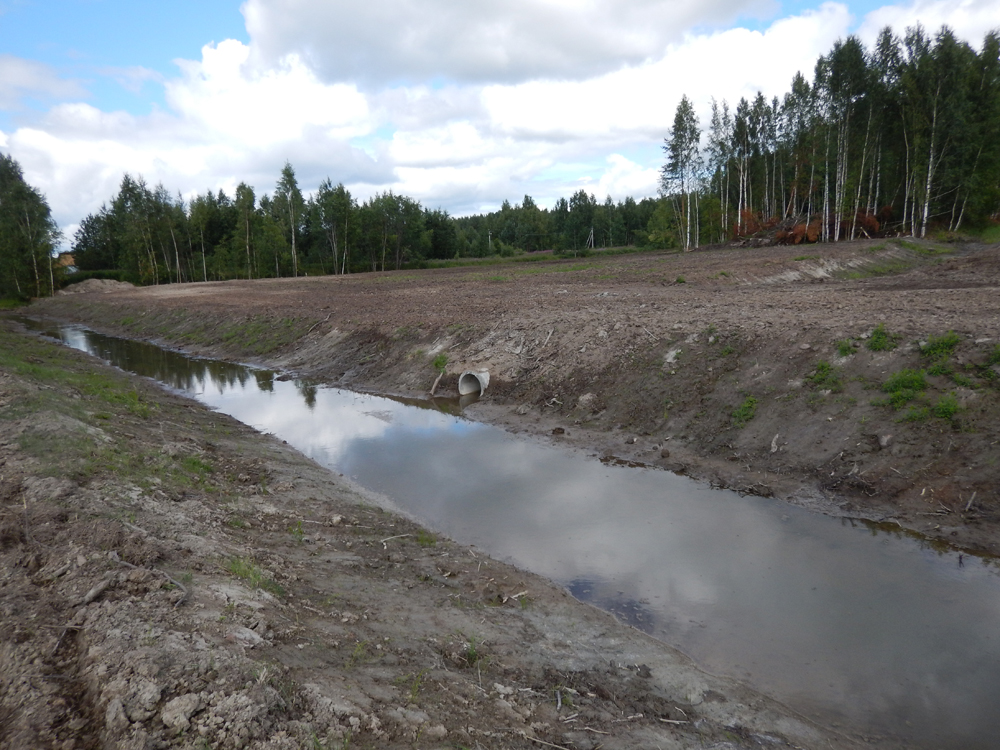Trends in agricultural policy: involvement of agricultural land in production, development of land reclamation and sustainability of ecosystems
Trends in agricultural policy: involvement of agricultural land in production, development of land reclamation and sustainability of ecosystems

Important changes in Russia’s agricultural policy took place in 2021. On May 14, 2021, the State Program for the effective involvement of agricultural land in production and development of the land reclamation in the Russian Federation was adopted. It is designed to strengthen the country’s food security, implement a plan to increase the volume of agricultural exports to $ 45 billion by 2030.
The program aims to achieve the following goals:
• bringing into production 13.2 million hectares of unused agricultural land by 2030;
• prevention of leave and preservation of reclaimed land in agricultural use on an area of at least 3.6 million hectares;
• agroforestry-, phyto- and chemical reclamation on an area of 2.8 million hectares;
• ensuring the water regime of irrigation and drainage systems on an area of 1.35 million hectares.
At the first stage – in the next five years – a reliable database will be created containing information about land plots in 83 regions, which are supposed to be brought into production.
The Waterdrive project initiated work on the creation of a geoportal with thematic electronic maps and a database on agricultural areas, land plots and water bodies for the Leningrad and Kaliningrad regions. This work is being carried out by the project partner St. Petersburg Federal Research Center of the Russian Academy of Sciences (SPC RAS). This area of work is extremely in demand at the regional and federal levels, therefore the geoportal is planned to be developed and supplemented with new information, including within the framework of interregional and international cooperation in new agro-environmental projects.
In terms of land reclamation, it is planned to drain the plots, plant forest shelter belts, combat erosion and desertification of lands, and also apply a whole range of other measures.
The new legislative initiative can be assessed both positively and negatively: new lands will be developed, the load on ecosystems from agricultural activities will increase, while increased attention is paid to the development of the reclamation projects, which gives impetus to the development of science and use of new agromeliorative technologies in agriculture.
The Program includes funding for applied research and experimental development:
• assessment of the state of reclamation systems based on monitoring data and field survey;
• development of new technical solutions for the creation and management of drainage and irrigation systems of two-way regulation;
• development of technologies for phytomeliorative reconstruction of pastures and rehabilitation of disturbed agricultural landscapes;
• development of a methodology for the design, creation and reconstruction of protective forest plantations on agricultural lands.
All these activities are included in the list of measures aimed at reducing water pollution, proposed by experts from the countries participating in the Waterdrive project, are of significant interest for application in the North-West Russian region and, thanks to the implementation of the Program, will receive funding and will be disseminated in other regions of Russia.
However, the agriculture sector and land use change (especially the plowing of fallow lands) are responsible for 23% of global greenhouse gas emissions. On the positive side, the carbon agenda in Russia has begun to be widely discussed and concrete steps have been taken. As part of the climate agenda, Russia takes commitments to reduce greenhouse gas emissions by 2030 (November 2020), a draft law on limiting greenhouse gas emissions was approved (April 2021). One of the directions of the scientific and technical policy of the Russian Federation for 2021-2030 is to conduct research on sources and sinks of greenhouse gases, measures are taken to reduce the negative impact on the environment (February 2021).
Thus, the tasks set for the agro-industrial complex (Russian agriculture) are contradictory and require finding a balance to ensure the sustainable development of food systems. But the knowledge foundation laid by the Waterdrive project will make agriculture more resilient by informing farmers about the pressure on water sources from agricultural activities, as well as summarizing European experience in applying modern technologies aimed at reducing water pollution.
Authors: Elena Payurova, Mikhail Ponomarev – St. Petersburg Federal Research Center of the Russian Academy of Sciences (SPC RAS); organization department – Institute of Agricultural Economics and Rural Development (IAERD)
Photo by: Lenmeliovodkhoz – http://lenmel.ru/галерея/nggallery/основное-1/Галерея


